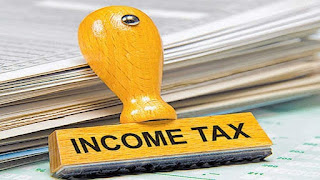Didn’t file income tax returns for FY19 and 20? Face double the TDS rate from July 1
Before payments are made, a portion is deducted as tax upfront. This is done to make sure the transactions are reported to the income tax department.
So far, a higher TDS rate was deducted only for those who didn’t have PAN. But now, a steeper rate of TDS would be deducted if you haven’t filed tax returns, too. Know which payments will be affected and how.
When would this start?
Officially, the rule comes into effect from July 1, 2021, as mentioned in Budget 2021-22.
Which two years would be considered for higher tax deduction?
The newly introduced Section 206AB would be applicable only if the due date for filing the tax return for the previous years under Section 139(1) expires.
So, you should have filed your tax returns for the two previous years.
“The joint secretary mentioned earlier this week that the specified persons list has been created based on those who haven’t filed tax returns for financial year 2018-19 and 2019-20. The income tax department has also clarified that the list will be updated only once at the start of the financial year and one needn’t check for compliance frequently,” says Ameet Patel, Partner at Manohar Chowdhry & Associates.
So, the confusion has been put to rest about the tax filing status change during the middle of the year.
Karan Batra, founder of Chartered Club of India, says, “The income tax return filing due date has been extended to September 30, 2021. So, the returns for financial year 2020-21 will not be considered for the deduction of higher TDS.”
Which of my payments would be affected?
Taxes are deducted (TDS) before paying your dividend, fixed deposit interest, service payments, rent on property or even before you sell your property. If you haven’t filed tax returns for the past two years, double the TDS rates would apply.
All that the TDS deductor needs to do is to enter your Permanent Account Number (PAN) and your information gets pulled out.
For non-filers, what would be the TDS rate?
If you haven’t filed tax returns, then twice the rate mentioned for specific transactions would be deducted.
Will the TDS on my salary too be affected?
No, the earnings through salaries and a few other incomes have been exempted from this rule. Provident fund payments that would be excluded.
Batra elaborates, “The newly introduced rule will not apply to TDS on payment of salary and even provident fund withdrawal. TDS on lottery and horse race winnings too have been excluded. If TDS is being deducted on cash withdrawal above the mentioned limits, then too the double TDS rule will not apply whether you have filed returns or not.”
Would my fixed deposit interest be affected?
If you have a TDS above Rs 50,000 then a higher amount would be deducted if you haven’t filed the tax return. “A clause states that higher TDS will be deducted if the total TDS amount exceeds Rs 50,000,” says Batra.
How will a bank know if my TDS is above Rs 50,000?
The Income tax department has prepared a list of individuals who have haven’t filed tax returns for the financial years 2018-2019 and 2019-20 and who have a TDS of more than Rs 50,000.
“Unless one can check the tax filing status, there is no way to ascertain how much tax to deduct. Though there was a system in place for banks to assess whether the return has been filed, there was no such alternative for large corporates or even individuals to check the status of tax filing. The compliance checker would help in assessing the amount to be deducted,” Paras Savla, partner at KPB & Associates.
“Yet, due to the teething issues with the new income tax portal companies, vendors asking individuals to share the tax return filing acknowledgement or a declaration with vendors, tenants (paying a rent of more than Rs 50,000 per month),” he adds.
How should I protect my tax return from frauds?
If you share your tax returns with various entities and even individuals for rental income etc., then you must safeguard your returns before sharing the same.
Masking critical information is essential to avoid its misuse.
“If you are share the Income Tax returns document, then mask the acknowledgement number. If you share the acknowledgement details, there are chances that one can break the security system and try to log in to your Income tax account and even reset the password. One must also block the date of birth (DOB), as a combination of name and DOB becomes the access password for many financial documents,” says Savla.
he income tax laws allow you to file belated tax returns (with penalty) for earnings of financial year 2020-21 up to March 31, 2022. “The tax filing due date is September 2021, hence not many have filed returns in June 2021,” says Batra.
So, if you do file the return, then the compliance checker on the portal would remove your name from the “specified persons” list. The list essentially comprises the people who need to pay double the rate of TDS.
Source:https://www.moneycontrol.com/news/business/personal-finance/didnt-file-income-tax-returns-for-fy19-and-20-face-double-the-tds-rate-from-july-1-7075201.html
Download our App to get knowledge updates::: https://play.google.com/store/apps/details?id=com.app.gstmitra
Join Our Telegram Channel for more updates:https://t.me/praveengst




Comments
Post a Comment